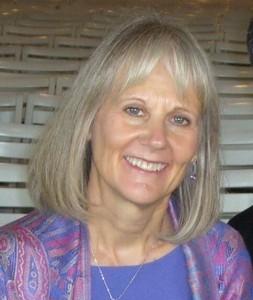 When both her parents were diagnosed with dementia, Vicki was thrust into a caregiving role and coped with the ups and downs of the disease by writing a journal. She would end up turning that into a memoir and speaking out to raise awareness of dementia.
When both her parents were diagnosed with dementia, Vicki was thrust into a caregiving role and coped with the ups and downs of the disease by writing a journal. She would end up turning that into a memoir and speaking out to raise awareness of dementia.
Tell us a little about your background…
I grew up in Miles City, a small town on the eastern plains of Montana, population 9,000, in the 1950s and 1960s, a 4th generation Montanan. My only sibling, a brother, 15 years older, had moved away in my youth so, for all intents and purposes, I grew up an only child with older, perfectionistic parents. My parents’ friends had no children, so I spent more than the average amount of time in the company of adults. I don’t know if my proclivity toward introspection was primed by this experience, but I do remember being a quiet, observant, and sometimes reticent, child.
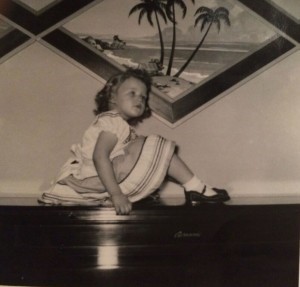
1955

Hawaiian Dance, 1960
My father operated a small, corner grocery store, and was mayor of our small town for most of my childhood years; I sometimes felt alienated, as only a “mayor’s daughter” might understand. Combining this with my shyness earned me the label “stuck up,” although I believe “introvert” might have been a better description. My solitary and somewhat lonely life was forever changed when a family with a girl my age moved into the vacant house next door during the summer of my 11th year.
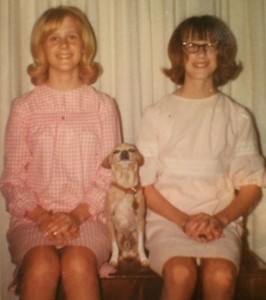
With my BFF, Kathy, 1966
Kathy quickly became my confidante and closest friend. Over the next seven years, we grew from free-range children who loved the outdoors, into conscientious and studious young women. We talked endlessly about “deep” subjects. Both of us still have vivid memories of late summer evenings spent sitting on the curb under the corner streetlamp near our houses, analyzing every detail of our lives, while also pondering the meaning of it all.

My first journal, 1968
The summer of my 16th year, I began keeping a journal, with a deep and secret desire to someday be a “writer.” I’ve continued to make journal entries for the past 48 years, learning early on that writing is a way for me to cope and attempt to sort out life’s dilemmas.
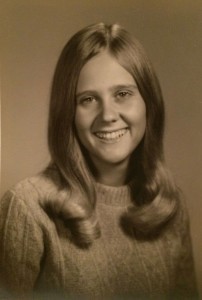
1970 yearbook photo
I graduated as Valedictorian of my high school class in 1970 and became the first member of my family to attend university. Offered an academic scholarship, I attended Montana State University in Bozeman, graduating in 1974 with a degree in elementary education. I’d married my high school sweetheart halfway through college, in September of 1972 and, after graduation, we embarked on a backpacking tour of Europe. With our backpacks and a Eurail pass, we spent two months vagabonding through eight countries, relying on serendipity for our direction.
Europe became my new classroom. For a small-town girl who had traveled little, it opened up a world of possibilities and created a sense of adventure that I’ve embraced ever since. While in no way do I discount my four years at university and all the experiences afforded by higher education, I believe the school of travel has been as much of an education for me as my time in an actual classroom. Traveling has helped me learn about myself and gain a broader perspective of different cultures. A favorite quote of mine about travel that I believe whole-heartedly is from Mark Twain: “Travel is fatal to prejudice, bigotry, and narrow-mindedness…”
My husband, a newly minted chemical engineer, had a job waiting at Dow Chemical in Midland, Michigan, so after returning from Europe, we moved to the Midwest. Teaching jobs were scarce, so I also found employment at Dow Chemical, but in the Salaried Personnel Department, not in Engineering. Thank goodness for those two years of shorthand and typing in high school! This job suited my curious nature and within a couple years, I’d worked my way up to Senior Administrative Office Assistant for the department head, before I eventually made a lateral transfer to work for the head of the Psychology Department.

With Megan
My life changed profoundly when our first child, Megan, was born in April 1978. No advance explanations could truly describe the transformation I would experience. Before I held my daughter in my arms, I believed I’d return to work, but it took little time to recognize that I wanted to be the one to hear my daughter say her first words, watch her take her first steps, and kiss her boo-boos in real time.
Luckily, by being frugal, we were able to live solely on my husband’s salary, an option not available to many then and even less so in today’s world. Breastfeeding my daughter led me to the breastfeeding support group, La Leche League, where I found like-minded women, and my niche.
A long and cold fourth winter in Michigan, coupled with a desire to be closer to family, led to a search for job opportunities out West. When our daughter was six months old, we moved to Seattle, where my husband went to work for Boeing Airplane Company. During the four years we lived there, we had a second child, Kyle, in 1980. By our fourth winter in Seattle, we decided we missed blue sky too much to live in the grey drizzle. After securing an engineering job in Billings, we happily moved back to Montana, where our third child, Jill, was born in 1982.

1993, with Megan, Kyle, and Jill
Over the years, serendipity has woven its way through my life. Soon after we moved back to Billings, I took a pregnant friend to a La Leche League (LLL) meeting. Impulsively, at the end of the meeting, I approached the leader, Diane, and asked about becoming a volunteer leader myself. While I’d lived in Seattle, I’d been a pseudo breastfeeding counselor for all my friends and found that I loved the interaction and satisfaction of helping a mother and baby succeed with breastfeeding. After a year of training, I became a La Leche League Leader in 1983. I began to lead meetings and take phone calls from mothers with breastfeeding concerns, receiving back more than I ever gave. I’d found my groove. I loved being a mother and I loved helping other mothers/babies succeed with breastfeeding.
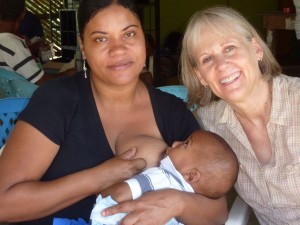
As an outlet for creativity, it was during this time I learned calligraphy and the art of flower arranging. I also found my first opportunity to be involved with writing, when I became the state editor of the LLL newsmagazine, published four times a year. I solicited, as well as wrote articles, did the layout, calligraphy/artwork, and mailing. In the beginning, my work was done on a typewriter. Imagine my glee when my husband and I got our first word processor/computer. I could actually make corrections without correction fluid or tape. A miracle!
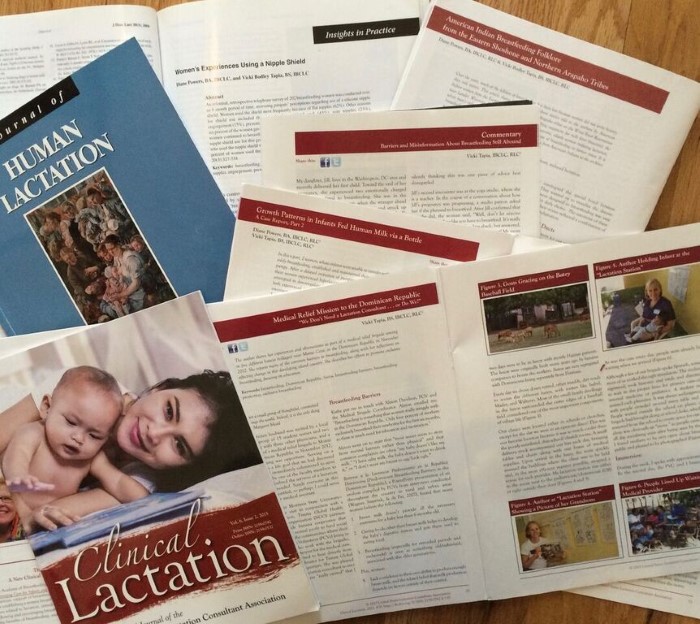
In 1986, although I was still active as an LLL Leader, Diane invited me to join her fledgling lactation consulting business. This was my first foray into reinvention, as we sought to shift our lactation know-how from volunteer to income-based. Diane and I worked diligently at promoting our business, Lactation Associates of Montana, over the next three years in an effort to convince local physicians that providing a lactation consulting service would be a helpful and time saving addition to their practice. All we managed to find were closed doors.
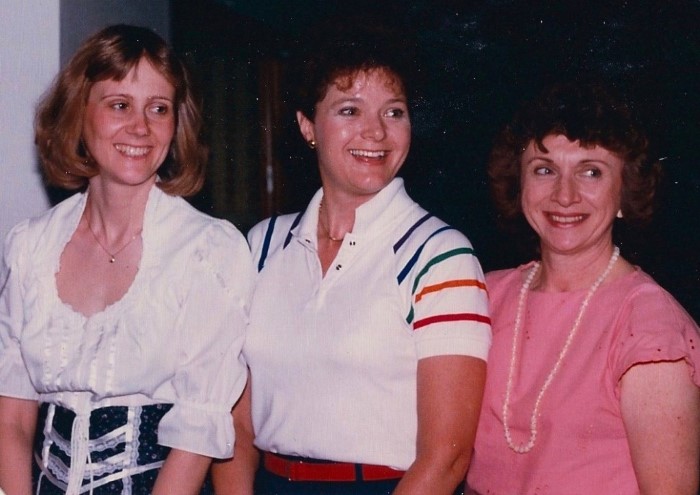
With Diane (middle) and Marian Thompson, LLL Founder, 1994
Finally, just as we were about to give up, a local pediatric practice took a risk and hired us to visit their new mothers and babies in the hospital each day, at no charge to the mothers. Since the beginning, this group of pediatricians has always completely underwritten the cost of the lactation consulting service. It was remarkable in many ways that they hired us, as on-staff lactation consultants were not common in 1989. We became the first non-medically degreed people to ever receive hospital privileges at our local hospital.
Diane and I job shared this consulting business, each working three mornings a week, plus taking phone calls 24/7. It was the right amount of work while we were raising our children. In 1994, we both became internationally board certified. We also offered training seminars for nurses or others interested in learning more about teaching mothers and babies to breastfeed. Besides speaking at local conferences, we traveled to speak at different venues in the United States and even once, internationally, to Vienna, Austria.

With Diane in Vienna
Writing was another arena in which Diane and I collaborated. Our articles and case studies have been published in different lactation journals, cited in textbooks and other research articles, as well as included in several monographs. Although it was in a more technical sense, I first became a published author in a lactation journal in 1996.
As a lactation consultant, I had truly found my passion, my bliss. Over the next 25 years, I had the joy-filled opportunity to meet and serve around 20,000 mother/baby dyads in both hospital and clinical settings. Diane and I worked together until 2000, when she accepted a new full-time position at our city’s other hospital, leaving me with her half of our joint job, although we continued our speaking and writing collaboration until I retired.
During these years, my children grew and, one by one began to leave home for college. In 1999, when Megan was a college junior, Kyle a high school senior, and Jill a sophomore, my marriage of 27 years ended.
In the summer of 2001, a mutual friend introduced me to the man who would become my second husband. A pediatrician, Lionel and I had much in common, particularly enjoying the outdoors through hiking and cycling. We also discovered our shared love of new experiences found through travel. Lionel and I married two years later, in August of 2003.

With Lionel in Cairo
As I’ve long considered travel my classroom of the world, my education began in earnest after we married. Not content with journeys that are designed by others (read: tours), we’ve typically arranged our own adventures, and to date have either, hiked, cycled, walked, dug (archeological dig), or served (medical mission) in the U.S. and 19 foreign countries on five continents.

Lionel and I on a medical mission in Haiti
Lionel and I were married nearly a year when both my parents were diagnosed with dementia—Mom with Alzheimer’s disease/vascular dementia and Dad with Parkinson’s-related dementia. Over the years, Mom and Dad always insisted they’d live and eventually die in Miles City, but after their diagnosis, I began to encourage them to consider moving two hours west to Billings to be closer to me. Mom, especially, was adamant they would not be moving. Life intervened.
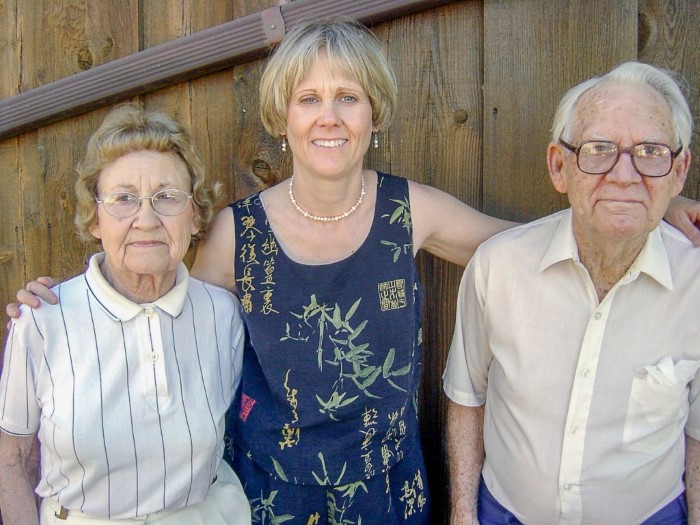
With my parents on Dad’s 90th, 2003
One evening in the summer of 2004, Dad, unstable from the Parkinson’s, lost his balance as Mom was assisting him to stand up from his recliner, resulting in him falling and pulling Mom down with him. This incident frightened Mom so badly that the next day, she deposited Dad in the local nursing home, sadly conceding she could no longer safely care for him on her own.
Next, winter descended with cold and snow, and no one to help Mom with the shoveling. It still came as a surprise, however, when she called to say she was ready for the both of them to move to an assisted living facility in Billings. I recognized how difficult this decision was for my mother and admired her bravery. She’d lived in Miles City for 86 years and would be leaving everything familiar behind. I, on the other hand, was relieved and thought moving them nearby would ease everyone’s stress. Little did I know.
Other than my new husband, I had little support. There was only so much I felt comfortable discussing with friends. Of course, my children were supportive, but they all lived far away. Not that they recognized it at the time, but my children became part of my support network. When I left the assisted living facility, I often called one of them on my drive home, simply to hear a voice with hope and a future.
As I’d always done in times of stress, I journaled over the next five years—for the first time, on a computer—which allowed me to cope with the up and down effects of dementia on my parents. Writing was the one constant in my life that asked for nothing in return.

My parents on their wedding day, 1936
Mom passed away March 9, 2008 (two days after my 56th birthday) and Dad March 10, 2009. While life did go on, it’s never the same after losing both parents. Sometime I still think, “Oh, I need to call Mom and ask her…”
I thought I was done with journaling about caregiving and dementia, but it seemed I couldn’t let it go. I kept remembering other incidents and refining what I’d previously written. It was then I decided to edit my narrative and compile it into a memoir for my children. Jill, my youngest, offered to help with editing, which was a wonderful way to forge a deeper connection with her. Writing and rewriting also helped me to grieve my parents’ deaths and begin to move forward.
During the dementia journey with my parents (2004-2009), I often caught myself perseverating about what my future—and that of my children and grandchildren—had in store. Did the same devastating fate await us? A few years ago, though, I turned a corner. It was at that time that I had a stern talk with myself, leaving no room for negotiation: “Listen, if you keep dwelling on this, your brain will become a self-fulfilling prophecy.” It took me some time, but as a “recovering worrier,” I’ve given up perseverating. I had to. Nothing positive can come from dwelling on a potential. It’s wasted energy. Besides, who knows what researchers may discover between now and then?
Also, from what I understand, the genetic link has more to do with the early onset types of dementia. It’s uncertain whether my Grandpa, who had been diagnosed with arteriosclerosis in his mid-sixties, had actually had early onset dementia, but my mom was in her 80s, so I’ve been able to let that worry go, as well. I’ve read numerous articles potentially linking environmental factors, as well as lifestyle choices, such as smoking (both my mom and grandpa smoked), to an increased risk of developing dementia. I’m doing everything possible to maintain a healthy lifestyle with diet and exercise, staying involved and challenging my brain. I subscribe to the saying: Yesterday is gone, and tomorrow has not yet come. We have only today.

With my kids, 2006
When did you start to think about making a change in midlife?
My passion for my work as a lactation consultant started to wane in 2010. Helping mothers and babies no longer offered the same sense of satisfaction or fulfillment that it had for so many years. Consulting emotionally distraught mothers can be extremely draining and many days, I felt exhausted before I even left the house for work. No longer did I look forward to my day with the anticipation that I’d once had. As time went on, I began to resent the constant stream of phone calls from mothers in crisis. I’d seen and heard the same situations thousands of times and I knew I needed to make a change before I began to sound like a robot.
Still, I continued to work while wondering what was in store for my future and where a new path might lie. I couldn’t walk away from 25 years of building a practice, leaving no one in my place. Finding someone who had the skills and only wanted part-time work proved to be a major challenge. Serendipitously, a chance comment at a Christmas party in 2011 to the wife of one of my husband’s colleagues led to her becoming my replacement.
Once I’d made the decision to retire from lactation consulting, the wave of complete relief that radiated throughout my entire being told me beyond a doubt that it was the right choice. Plus, I desperately wanted to spend more time on my writing, without the interruption of phone calls.
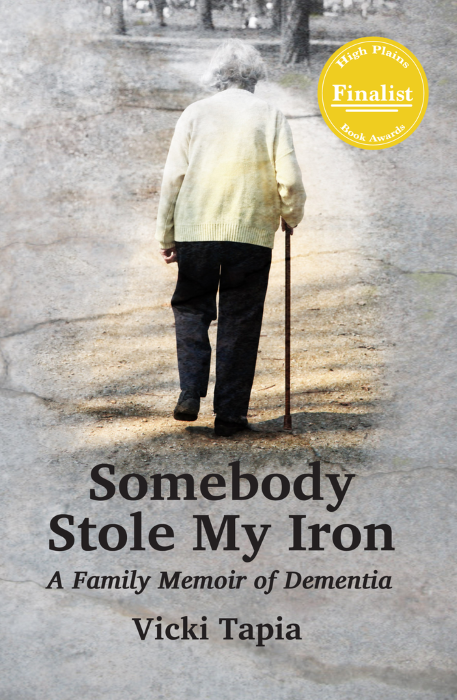
What is your next act?
I advocate for dementia awareness, both through my memoir, Somebody Stole My Iron: A Family Memoir of Dementia, and through public speaking.
Somebody Stole My Iron is a story about my parents and the journey we traveled together down the rabbit hole of dementia. The narrative is written from my viewpoint, as candidly and honestly as possible. Sometimes funny, often sad, it details the daily challenges, turbulent emotions, and many painful decisions involved when caring for two parents with the disease. The stories are woven together in a way that shares the insights I gained, tips for coping, advice from experts in the field, and the lessons I learned along the way. I view my memoir as a practical road map for others navigating similar uncertain waters, letting them know they aren’t alone.
My presentation on dementia awareness, “It’s Only a Senior Moment…Or Is It?” shares personal stories from the dementia journey I traveled with my parents, along with excerpts from my memoir. It also explores the difference between normal aging and cognitive impairment, as I discuss some early warning signs and symptoms of dementia. I explain why early detection can help the affected person live better in the now, and also the importance of end of life conversations.
Dementia is a tsunami waiting to happen, with so many baby boomers aging. The chance of dementia doubles every decade after the age of 65. Women have a greater risk, mostly because we live longer.
In the U.S., a new case of Alzheimer’s is diagnosed every 67 seconds and by mid-century, it’s predicted to be every 33 seconds. Of the three leading causes of death (cancer and heart disease are the other two), it’s the only one that can’t be prevented, slowed in its progression, or cured. More than ten times the amount of money is currently spent in the U.S. on cancer research, despite the fact that Alzheimer’s costs more and causes a similar number of deaths each year.
Apparently, I’ve found a new passion, or should I say, it found me…
How did you come complete and publish your memoir?
My friend and fellow lactation consultant, Diane, asked to read the manuscript I’d edited with Jill’s help, as her parents were also both affected by dementia. She suggested I publish it to help others in similar situations. I thought this over and began to consider that my book might have something to offer a wider audience. When I tentatively decided to look for a publisher, I bought a copy of the thick Writer’s Market: The Most Trusted Guide to Getting Published, did the research, sent out query letters, and waited, slowly collecting rejection letters or simply silence. Discouraging? You bet! To help cope, I kept editing my manuscript.
Eventually, after months of editing, my daughter and I decided to move on and be finished with the process. The finished work, entitled Plaques & Tangles, went to a local print shop in 2009 to be printed and spiral bound as Christmas gifts for my three children. I figured that was that.

However, I didn’t delete the manuscript from my hard drive, so it hung out as a PDF file on my computer. Friends, and friends of friends, with a parent suffering some form of dementia, sometimes expressed an interest in reading my memoir. With the forwarding of my PDF, it was easily done. They offered positive feedback and, sometimes, suggestions for improvement. This caused something deep inside me to whisper I wasn’t done with this project.
I was acquainted with a well-known author in our region, Russell Rowland, who in 2011 offered to read a couple of chapters. This was very possibly a hopeful attempt on his part to silence me from my continued angst over the entire project and what to do with it. His unexpected positive reaction, saying my book really did have “potential,” compelled me to hire him to edit the entire work.
With the help of Russell, along with my daughter’s input, I continued to edit and improve the manuscript into 2012, when I found a small independent publisher, Praeclarus Press, that specializes in publishing books about women’s issues. The publisher/editor of the press was also the editor of a lactation journal where my writing had been previously published, and she was familiar with my work. She read my book proposal, requested the manuscript, and sent me a book contract a couple of weeks later, which I signed in January of 2013. What started as a journal in 2005 ended with the publication of Somebody Stole My Iron: A Family Memoir of Dementia in January of 2014.
Retirement from my job as a lactation consultant freed me to devote more time to my writing and to my children, as well as a growing number of grandchildren. My journals and my memoir are part of my legacy for these children to remember those who came before.
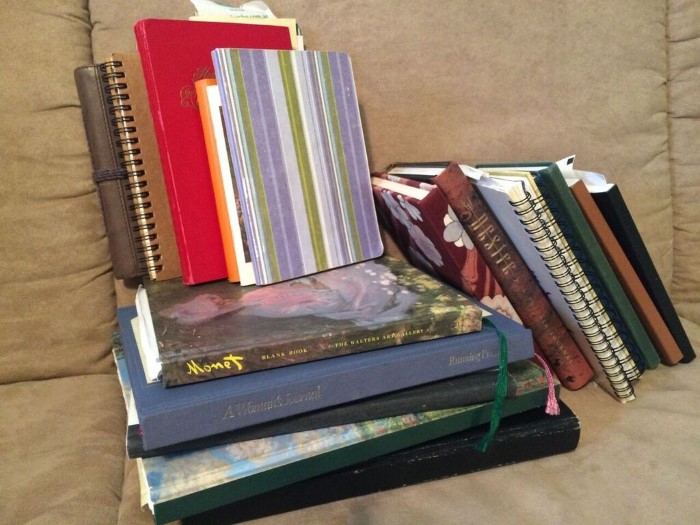
My journals, 1968 through 2015
How did you start to speak about dementia awareness?
After my book was published, I was interviewed by our daily newspaper and a local woman’s magazine. Because of this exposure, both a caregiver group and a church congregation approached me to share my story. This was the beginning of how the promotion of my memoir morphed into an opportunity to educate people in my community about dementia. I developed a PowerPoint presentation about dementia awareness, interwoven with a few readings from my memoir. Since those first presentations back in the spring of 2014, I’ve been fortunate to share this talk at many different venues in Billings.
Why did you choose this next act?
This next act definitely chose me. Had you told me ten years ago what I’d be doing today, I would have simply stared at you incredulously. At the time, I was about a year into the dementia journey with my parents, wondering how I could be a better caregiver and questioning how I would continue to cope with all that came with this disease. I loved my parents and it was excruciating to watch them disappear in increments, first in mind, then in body. Creating awareness by publishing my memoir and speaking out about dementia awareness has become my way to honor their memory, in a belief that their journey through this disease wasn’t in vain.
“Your greatest joy is your purpose.” I recently came across this quote I’d long ago written on a scrap of paper. How many of us spend our lives seeking high and low for that purpose? In fact, I know people my age who are still searching. There were times over the years, especially early on, that I worried about having wasted my time (and my parent’s money) getting a degree in education, since I never taught in a school setting. What I particularly love about this quote is the realization it’s given me. Although I am passionate about both the art of breastfeeding and helping caregivers navigate dementia, at my core, I believe my purpose, my joy, has been teaching, guiding, and gently easing people into discovery, helping them to illuminate their own journey.
While working with the mother/newborn dyad at the beginning of life and sharing dementia information with those at the other end of life may seem like two different worlds, for me there is a connection. For half of my life, I strived to help mothers and babies successfully breastfeed. I’ve now written a dementia memoir offering caregivers in similar situations a practical and helpful guide, a road map, if you will, to help light their way. It’s clear to me that breastfeeding and dementia are both journeys. One is a journey into this life and the other, a journey out. Teachers are guides and that’s what I’ve been.
I recognize that over the years, my skills have continued to build in layers. Journal writing, beginning as a teen, led to producing a newsmagazine for LLL and then technical writing about lactation, which led to more journal writing that in time, became a published memoir. Leading LLL meetings gave me my start in public speaking, which led to speaking about lactation for audiences around the world, which has led me to my current next act, that of speaking out about dementia awareness.
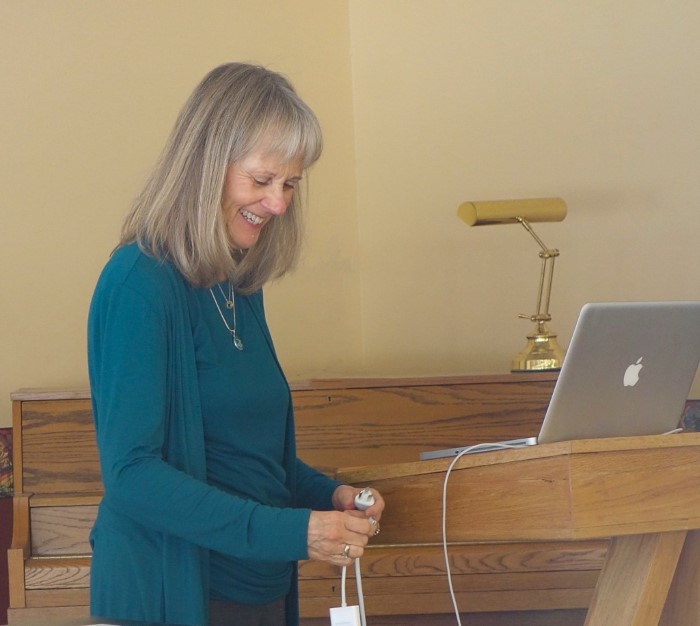
Preparing to speak on dementia awareness, 2015
How supportive were your family and friends?
It helped that, with the exception of one friend, everyone was extremely supportive about the possibility of my manuscript being published. My husband said he felt my parents would consider it an honor that I wrote an entire book about them, especially if it helped someone else in need of support.
What challenges have you encountered?
One substantial challenge was silencing my inner demons; there were so many insecurities and unanswered questions. Along the way, I’ve encountered lots of mental anguish of my own making, beginning with “imposter syndrome.” Could I truly call myself an author and publish a book? Was the writing good enough for publication? Was the content worthwhile? Would anyone else be interested or find the memoir helpful?
Privacy issues were another challenge. For several years, I’d obsessed whether it was disrespectful to publish a memoir that anyone might read versus privately self-publishing a few copies for family. This was a large part of the reason I hesitated to even pursue publication. There were times I was besieged with thoughts that I’d be dishonoring my parents if I published, as suggested by a friend.
Staying positive during the process of finding a publisher and dealing with rejection meant I simply had to let it go, feeling peaceful that if it were meant to be, it would happen. Honestly, there were times when that was easier said than done. It’s difficult, sometimes nigh on impossible, for me not to personalize rejection.
When I did eventually receive a traditional book-publishing contract, another mental challenge emerged. My son-in-law showed me many reasons why I should self-publish, all of them rational and worthy of consideration. In the end, I admitted to myself that I wanted the satisfaction of being traditionally published.
After signing the book contract, I challenged myself to rewrite the entire second half of the book. That had been a suggestion of my friend, the author/editor, because he felt it would make the book more cohesive. The first half of the book was written as a narrative in a conversational style, while the second half was entirely diary entries. Up until this point, I’d chosen to ignore his recommendation. It took the realization I was actually sending my manuscript to a publisher to wake up and face the challenge of rewriting, which took an additional three months. When at last I mailed off the manuscript, I perseverated whether it was polished to a point where I felt satisfied I’d done my best work. (Never. I could still go back and do more edits.)
During 2013, as the book traveled the path to publication, my publisher started to send me information about promoting my book, and it became clear that I’d need to master another challenge: my fear of social media. For a reticent, introspective, and quiet person, book promotion was never on my list of aspirations. The past two years have stretched me in ways I wouldn’t have imagined, as I’ve learned to embrace social media and all that entails. Probably one of the last people to join Facebook, I sheepishly had to admit a whole new world opened after I finally took the plunge. I realized I rather liked connecting with old friends and meeting new ones. After learning my way around Facebook, I next tackled Twitter. Promotion does not go away. It continues to be a challenge, as it’s something I feel directed to engage with each and every day.
Blogging has been my newest challenge—finding content, agonizing over my writing, and then promoting it on social media—but one that is helping me to grow as a writer.
My biggest ongoing challenge has always been finding/taking the time to write. Family has always come first for me and while each of the following are important (especially grandchildren) and part of “living” life, it often seems writing comes last. It comes after connecting with my children/grandchildren, walking the dog, finishing household chores, updating social media and meeting various social obligations. How did writing end up at the bottom of this list, anyway? Yes, I’ve read the many ways to make writing time sacred, and it is a goal I strive toward, but somehow it’s a goal I’ve yet to achieve.
Also, for the longest time I believed that if I wasn’t at work writing my next book, I wasn’t actually writing. But with other opportunities, such as this interview or my blog, I realize I am writing, so maybe I’m closer to my goal than I’ve given myself credit.

At my desk in my home “office”
Were there times when you thought about giving up?
Oh, let me count the times…it definitely helps to be tenacious.
Continuing to move forward with little feedback and lots of rejection can be difficult as well as frustrating. I’ve never had a thick skin, so I would say criticism is one of my life skills growth areas. Overall, people have been very kind to me and the comments about my memoir have been positive, so that has helped me keep on, keeping on.
Before publication, there were days when I questioned why I continued to write, edit and rewrite. What was the point? I could instead be reading for leisure, spending more time with my grandchildren, doing more volunteer work, or learning the art of watercolor.
There was, however, this nagging voice inside me that wouldn’t leave me alone. What if your journey might help make someone else’s journey less lonely or painful? What if your words offered hope to someone in need of that hope? Thoughts such as these got me started again during times of inertia. In this instance, self-talk actually worked. I’ve also always been driven to finish what I start, so it was the logical outcome for me to persevere.
What did you learn about yourself through this process?
I’ve learned that I can still learn new things! My learning curve to publication and promotion has been steep and I continue to learn every day. It has been an excellent way to challenge my brain.
Unexpectedly, I’ve learned about strength in numbers. Through Twitter, I’ve met some other amazing authors, each of whom has also written a book about Alzheimer’s/dementia:
Marianne Sciucco—Blue Hydrangeas
Shannon Wiersbitzky—What Flowers Remember
Greg O’Brien—On Pluto: Inside the Mind of Alzheimer’s
I have collaborated with these and other leaders in Alzheimer’s/dementia advocacy last year in June (Alzheimer’s Awareness Month) and again in November (Caregiver Appreciation Month) to promote our work, and plan to do it again in 2016. We’ve gotten far more visibility with our promotions as a group than individually. It’s been an incredible journey, as we’ve become not only collaborators but good friends and supporters of each other, as well. On first glance, it may seem counter-intuitive to join forces with the “competition,” so to speak. As authors, we haven’t found this to be true. If someone is looking for a book about a subject such as dementia, most will not stop with reading just one book.
I learned more deeply the art of patience and that for all things there is a season. I learned that it’s not impossible or even improbable to develop more than one career passion in a lifetime. I learned that I had the capability and stamina, with the help of talented editors, to write/edit/rewrite numerous times a book that was not only acceptable in the eyes of a traditional publisher, but also selected as one of three finalists in the Best Woman Writer category for the High Plains Book Awards for 2015.
The High Plains Book Awards encompasses 7 western states and 3 Canadian provinces. There were over 200 books nominated in 10 different categories, including 21 books nominated for Best Woman Writer.

What advice do you have for women seeking reinvention in midlife?
Back in 1998, someone said to me: This is not a dress rehearsal. It was like a wake-up call that this really is the only life I have to live, so I’d better make darn sure it’s the one that I want. Step forth boldly, filled with confidence. If you are knocked down, get back up and never, ever give up. Amazing things await you, with patience, tenacity and perhaps a bit of pixie dust. I’ve taken the statement: If one door closes, another opens a little further…I like to say that if one door closes and you can’t find another open one, look for a window. Follow your bliss.
What advice do you have for those interested in publishing a memoir?
Write, write, and then write. Write every day. It doesn’t always have to be the work in progress, as there are always other writing opportunities. If you hit the wall (writer’s block), take a solitary walk and let your mind wander. Or, go to bed early and let your mind wander, as you lie in bed in the darkened room. Many times, I’ve had an idea pop into my head while out walking my dog or am awakened in the middle of the night with one that unlocks the block.
Read, read, and then read. Read books and blogs in your genre, as well as books/articles about the art of writing. If you are fortunate enough to have one in your area, join a writing group, as there’s nothing so valuable as constructive feedback. If you have the luxury of a nearby college, perhaps consider a writing class or maybe find a quality class online.

One of the bookshelves in my house
A memoir whose premise is either completely unique or else universally compelling has the potential to increase the emotional impact for a reader. My memoir was of the universal variety, as so many of us are touched by dementia.
As with most books published today, the promotion starts long before the actual book is published. Memoirs are no different. My publisher told me that it was important to begin to grow a presence on social media and/or with a blog to help build my fan base in the months before the memoir was to be published.
Unlike an autobiography, a memoir is written with a theme about a specific time period. My theme was dementia and the purpose in writing my memoir was to share my experiences, in hopes of helping others in similar circumstances. In choosing what to tell when writing a memoir, I believe it’s important to be honest and show weaknesses and shortcomings, as well as successes. I think it draws readers in to realize we’re all in the same boat; we’re all human.
Having a theme gave me the opportunity to build a platform. My platform is dementia awareness and it opened the door to speaking. I’ve found this to be an additional way to promote and sell books. Find the memoir’s niche and that will lead to the target audience, who can relate to the story. I’ve found mine through speaking engagements at assisted living facilities, retirement homes, church groups, library book group, and the physician assistant program at a local college.
What advice do you have for those interested in speaking about their work and advocate for a cause?
It does take a bit of self-promotion, not always easy for an introverted writer. Getting comfortable reaching out to people is key. In the first interviews after my book’s publication, both articles had a sidebar with ways to contact me, indicating that I was available for speaking engagements. I also contacted people in my niche: assisted living facilities and memory care units, offering to share my presentation at their facility. I called our public library and pitched an idea to host a book group at the library. They agreed and we set a date. The Friends of the Library purchased 15 of my books and gave them to people interested in attending the one-time book group, which I led. Seventeen people attended and I sold two more books!

Book Fair, 2015
What resources do you recommend with respect to writing and publishing?
At the moment, I have email subscriptions to three forums, which is about all I find time to read in this particular arena. One is Writer Unboxed, which arrives daily in my inbox and is written by both unpublished and published authors, offering advice on every aspect of writing fiction. Once a week, I receive an email from Book Marketing Tools, a site that shares ideas for self-publishing and book promotion. Build Book Buzz is another resource to which I subscribe that offers information on self-publishing and book promotion.
Resources I utilize to promote my book include Google Alerts, Hootsuite, and Canva. I receive weekly updates (news articles), all related to dementia, Alzheimer’s, and caregivers that I peruse to decide which I’d like to pass along to my followers. I then preschedule these selected posts on Twitter and Facebook with the help of Hootsuite, a social media management tool.
I appreciate the flexibility of Canva when adding graphics to my original posts, for both Facebook and Twitter. It’s free, easy to learn, and you don’t have to be a graphic artist to use the site. Creating graphics is one aspect of promotion that I enjoy immensely.
While I sometimes hang out at the public library in search of resources, I find that many of the resources I use for writing are online and are quite varied, depending on what I’m attempting to create or learn. One of the reference books I like is The Emotion Thesaurus: A Writer’s Guide To Character Expression by Angela Ackerman & Becca Puglisi. It offers a list of non-verbal descriptive words for 75 different emotions including physical signals, internal sensations, mental responses, and acute or suppressed cues for each emotion. I have found this a useful reference for character descriptions.

My parents, celebrating 50 years of marriage
What advice do you have for those dealing with aging parents, dementia, and caregiving?
On a practical level, advance directives and signed durable and medical powers of attorney are crucial. Be certain this paperwork is kept in a location that is easily accessible and known by family members. The paperwork will do no one any good if it’s locked away in a safe somewhere that no one knows about. Discuss end-of-life wishes and have them in writing.
Learn all you can about the disease, so you have an idea what to expect as it progresses. Do your best to stay in the medical loop and keep the lines of communication open between different health care providers involved in your parent’s care.
Take care of yourself. Join a support group. If the first one you attend isn’t quite right for you, try another one. It’s so important to have someone to talk with and someone on a similar journey can be especially meaningful. Have a life outside of caregiving. Do not turn down offers of help! Stay connected socially. Exercise regularly. I kept a journal, which was my primary choice for coping.
On an emotional level, realize that caregiving is filled with a myriad of challenges. Remember, eventually the time will arrive when your loved one will still be in this world, but not of it. Reach out to them when they can no longer reach out to you. I mean this on both an emotional and a physical level. Find that point of loving acceptance, take life day by day and meet your loved one where they are. On a physical level, touch is so, so important. It was clear to me how much my parents loved to hold hands and receive touch until the very end.
You can never have an overabundance of compassion. Quoting Somebody Stole My Iron “Eventually, I learned to distance myself from my mother’s hurtful comments and no longer take them personally. I could listen to her, but cease reacting or agonizing over the things she said. I need not argue, reason, confront, or make nay attempt to convince her she was wrong! It didn’t matter any longer. What mattered were my parents’ feelings, accepting Mom and Dad as they were, and loving them despite their disabilities. This was easier said than done, however, as I can attest to in my journey. The sooner a caregiver reaches this place of acceptance, the less pain and angst he or she will experience.”
What about other favorite resources?
Lori LaBey Alzheimer’s Speaks Radio & Blog
Dementia Today
Alzheimer’s & Dementia Weekly: http://www.alzheimersweekly.com/
15 Minutes of Fame: Empowering Caregivers of Those With Alzheimer’s by Tryn Rose Seley
I Care: A Handbook for Care Partners of People with Dementia by Jennifer Brush and Kerry Mills
Novels:
The Notebook by Nicholas Sparks
Still Alice by Lisa Genova
Dancing with Rose: Finding Life in the Land of Alzheimer by Lauren Kessler

My parents, 1934
What’s next for you?
Although this is still my working title, I recently finished the first draft of Overcoming Maggie. This biographical work of fiction was inspired by the life of my great-grandmother, a spunky and determined woman thrust into marriages of abuse, not once, but three times. I have the actual divorce transcript from the first marriage, which inspired much of the first half of the book. This story, which begins in Michigan and ends in Montana, is a testament to her determination, courage, and spirit. It takes place around the turn of the 20th century, when women had few, if any, legal rights.
Contact Vicki Tapia at vicki.tapia@gmail.com
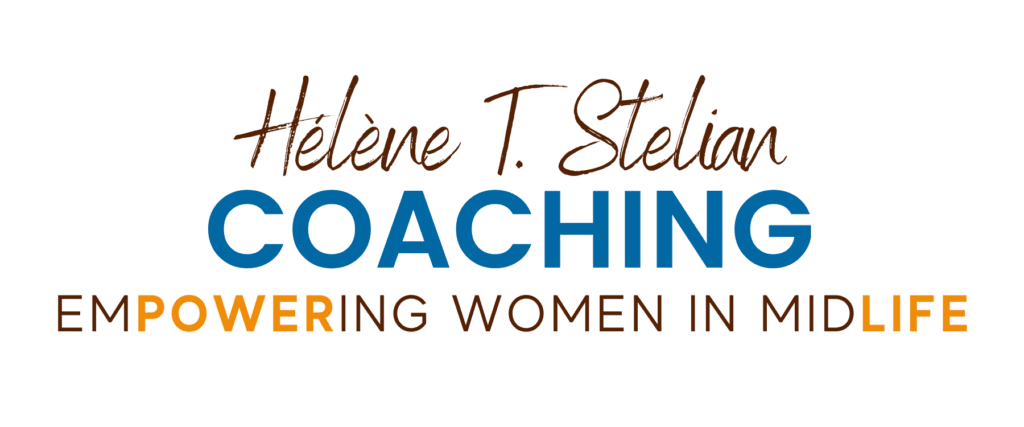
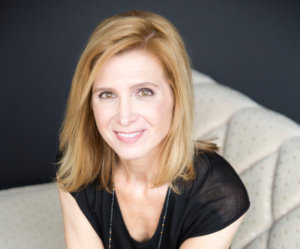
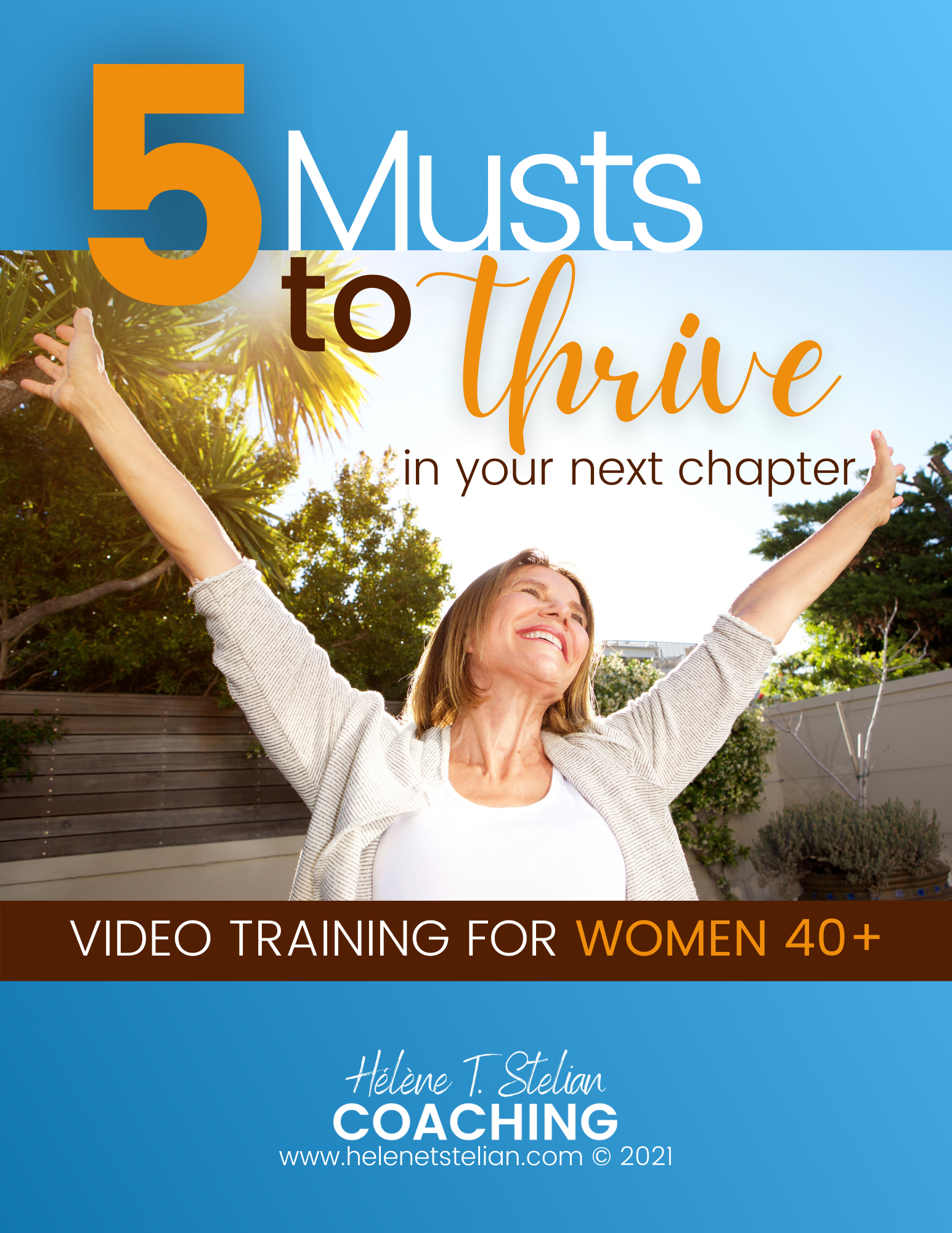



Vicki,
I too have been the caregiver of elderly parents, both with dementia.
Not an easy path to navigate.
I so appreciate your openness and honesty regarding life under the influence of this devastating disease. I chose early on that this last phase of my parents life was more about teaching me, than me guiding them. Oh, the lessons learned!!!
Thank you for the work you do and for the lovely heart, filled with compassion, that you do it with
So inspiring! Must share this one with friends!
Corie,
Thank you very much! I appreciate your response.
Kristine,
Thank you for your kindness. Yes, it certainly is about them teaching us, isn’t it? I also learned so much. Best wishes to you.
Congratulations on your careers and the wonderful work that has crafted your life! Wishing you the best for the future.
Haralee,
Thank you! Now, I’m off to check your recent post…
Vicki
A wonderful journey, a great advocate for women and now for people with dementia. I started writing Boomer Highway when I found myself sandwiched in between my mother who had dementia and needed so much help and my children who were all at ages when they too needed help. Then my husband developed a chronic illness. We as women are often pulled in many directions. I congratulate you on your book. Stay strong, even when a friend doesn’t understand your choices. It has happened to me too.
Dear Beth,
Thank you for your kind comments. I’ve learned there are many of us that find ourselves sandwiched between parents and children during a part of our life journey…
Keep up the good work on your blog, Boomer Highway!
Vicki, lovely and interesting interview.
Thank you, Helene, for bringing this to your followers.
So important, Jean, as you know all too well. Thanks for reading!
Thank you, Jean!
Very inspirational, thank you Vicki for sharing your story. I too was a LLL Leader for 25+ years and I find it fascinating how much I got from all those years of giving! And like you, my mother has Alzheimer’s. While it is heartbreakingly sad to watch her drift away, I admire her bravery. She has become much more loving these past years as she slips away, which has been healing –something I never thought I would say. PS: I plan to read the book!
Dear Heidi,
It seems we belong to the same sisterhood, in more than one way! LLL is a good example of the adage “as a volunteer, you often receive more than you give.” Oh, how I loved assisting all those mothers and babies for so many years…
I’m so sorry to hear about your mother, but also glad to hear you’ve found some healing along your family’s dementia journey. Thank you for planning to read my book — I hope you will find it useful!
LLL saved my life. I was alone in the boondocks. My husband was lost in China and had not heard from him for 6 months. With my newborn, a toddler and this added stress, I got mastitis and almost died. The women at LLL came to my rescue.
Thank you for sharing your story and I am glad to have met you and will follow you.
Carol,
Wow. What a story you have to tell. I hope your husband was found and all right?
Thank you for your comments and I’ve now followed you on Twitter too! 🙂
Very inspiring story even though we all know that dementia is not 100% curable.